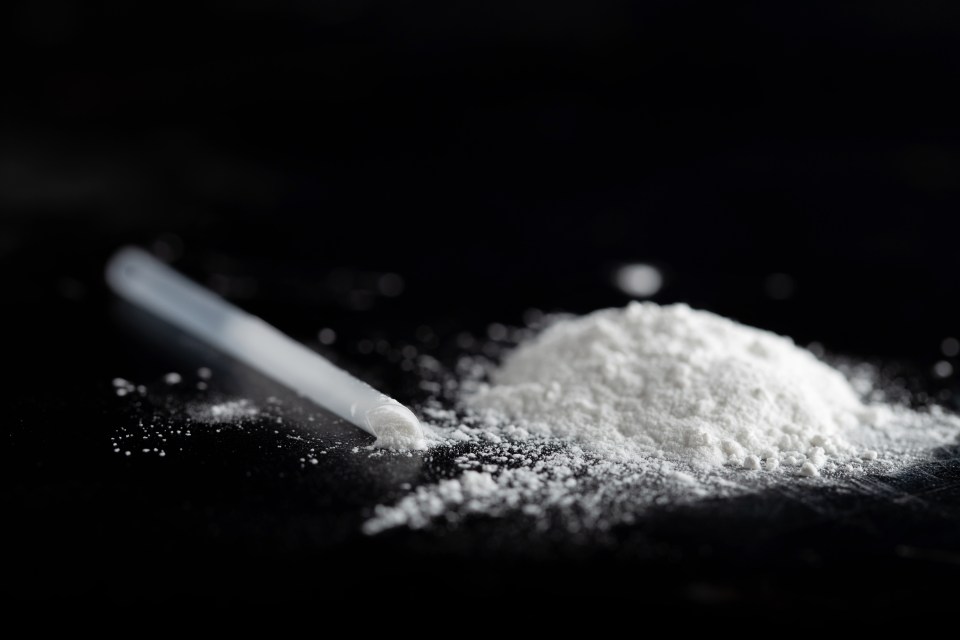KETAMINE has been dubbed the “heroin of a generation” by one user as experts reveal how it ravages the body and mind.
The potent painkiller and sedative has become a hugely popular street drug due to its hallucinogenic and relaxing effects.
But Exeter University researchers warn it causes “high levels of physical health problems and psychological consequences”.
Hollywood actor Matthew Perry, who played Chandler in the sitcom Friends, died in 2023 after an overdose.
A new study estimates nearly half – 44 per cent – of British users suffering devastating side effects do not get professional help.
The research, in the journal Addiction, followed 274 ketamine addicts in the UK, using an average of 2g per day.
It found 60 per cent had bladder or nasal problems, while 56 per cent had experienced organ cramps.
I feel this is the heroin of a generation
Anonymous study participant
The drug is known to be particularly damaging to the inner lining of the bladder, and heavy users can end up incontinent or needing to have the organ removed and replaced with a bag.
Six in 10 interviewees had mental health problems and reported psychological issues including cravings, low mood, anxiety and irritability.
One anonymous ketamine user in the study said: “I feel it is the heroin of a generation.
“More information will only become available once more people my age begin to suffer so greatly from misuse that it can’t be hidden anymore.”
Another added: “People know the risks of heroin and cocaine but not how addictive ketamine can become.”
Office for National Statistics figures show 2.9 per cent of 16 to 24-year-olds used ketamine last year.
An estimated quarter of a million adults of all ages took it.
About nine in 10 users snort the Class B drug, but it can also be injected.
One of the study authors, PhD student Rebecca Harding, from University College London, said: “Our study highlights the need for greater recognition of the significant physical and psychological risks associated with ketamine.
“We need improved treatment programs and raised awareness of ketamine use.”
THE TOLL ‘K’ TAKES ON YOUR BODY
KETAMINE can lead to death by putting pressure on the heart and respiratory system.
But its other effects on the body, which are often irreversible, are horrifying, too.
“Ketamine bladder syndrome is one of the worst symptoms,” Dr Catherine Carney, an addiction specialist at Delamere, told Sun Health.
This is where the breakdown of ketamine in the body causes inflammation in the bladder wall.
It leaves people unable to hold urine and passing chunks of their bladder tissue.
Some users face the prospect of having their bladders removed entirely.
Dr Carney explains: “The lining of the bladder can shrink over time and be extremely painful for those experiencing it.
“This can often lead to lower abdominal pain and pain when passing urine, as well as bleeding.
“It’s usually what has forced people to get help because they can’t tolerate it any more.
“We’ve had young men in agony, wetting the bed.
“Their whole life is focused on where there’s a toilet because they can only hold urine for ten minutes.
“For a teenager or someone in their early 20s, that’s absolutely life-changing.
“In some cases, the bladder damage progresses to the kidneys and people get kidney failure, too.
“This is developing in people who have been using for two years, so it is relatively quick.”
Dr Carney adds that the urine samples of new guests checking into the clinic are often just a “pot of blood”.
This is followed by weeks of agony coming off the drug. An irony of ketamine use is people tend to take more and more to numb the pain of the side-effects it causes.
Dr Carney says: “There’s nothing that we can give which is as strong as a medical anaesthetic (the ketamine). We can use codeine-based products or anti-inflammatories.
“Some antidepressants help at night, but the pain is hard to manage in the early days.
“Most people that come to us, the bladder will improve to the point that they don’t need to have it removed.
“But once you’ve got a bladder that has shrunk to the size of 70ml, that’s never getting better.”
